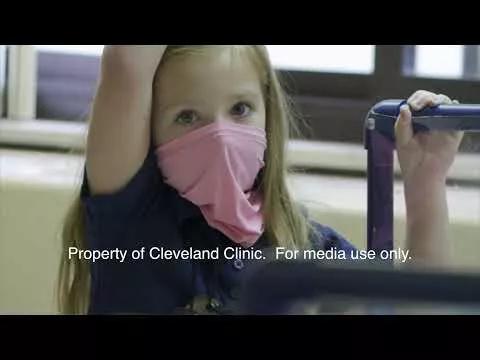A pediatric psychologist gives tips on how to help your child cope if they're being teased at school for wearing a mask.

Cleveland Clinic News Service | 216.444.0141
We’re available to shoot custom interviews & b-roll for media outlets upon request.
CCNS health and medical content is consumer-friendly, professional broadcast quality (available in HD), and available to media outlets each day.
images: 0
video: 3
audio: 2
text: 2
Content is property of Cleveland Clinic and for news media use only.
CLEVELAND – As kids head back to the classroom, they may worry about getting teased by other students for wearing a mask if it’s not required. So, what can parents to do help them cope?
“I think parents can do a lot to help their kids understand – and maybe this is a good thing in a bad wrapping, teaching kids early that people have different opinions and every family is different,” said Vanessa Jensen, PsyD, pediatric psychologist for Cleveland Clinic Children’s.
Dr. Jensen said parents can coach their kids on how to respond. For example, a child can simply say that their mom or dad wants them to wear a mask and they think it’s safe and trust their opinion. Another option is to explain that they have a sick relative at home.
She said if your child does start to ask questions about why they have to wear a mask, make sure to explain it in a way that they can understand. Your reasons don’t have to be complicated. The same goes for the COVID-19 vaccine.
Another tip is to model good behavior for your kids. If they see you are accepting and respectful of other people’s opinions, they are more likely to be as well.
“If kids don’t want to wear masks and they say my family says it’s okay not to do, kids can say, ‘Okay, that’s your family’s choice. I respect that. We can still be friends. We can still play.’ We don’t have to make everything into a big deal,” explained Dr. Jensen.
Dr. Jensen said if the teasing turns into bullying and starts to affect your child’s mental health, you should talk to their school.